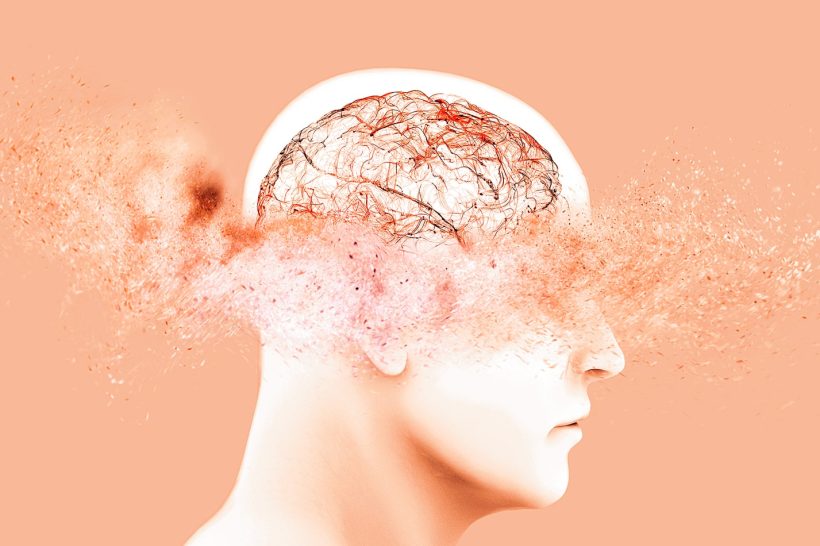It’s not surprising that legalizing marijuana leads to increased use. The Centers for Disease Control and Prevention (CDC) estimates that 18% of Americans now consumes some type of cannabis product. What might surprise you is that the greatest increase in marijuana use is among older adults. The numbers show that cannabis consumption by adults age 65 and older has increased five-fold in the past decade, and the most recent estimates indicate that nearly one-in-ten seniors are now using marijuana.
Marijuana use later in life does raise some legitimate concerns. To a greater or lesser extent, all human beings experience some degree of cognitive decline as we age, and the risk of dementia increases as the years go up. Given these realities, it’s a good idea to be cautious about consuming any substance that has either a short or long-term effect on mental function — including alcohol.
But what about marijuana? Is it a good or bad idea for the aging brain?
How Does Thc Affect The Aging Brain?
CannaMD has done some reporting in the past on the subject of cannabis and the aging brain. We shared the findings of a landmark study that showed how a low dose of THC slowed and, in many cases, reversed cognitive decline in older mice — without causing any negative and/or psychoactive side effects. In addition, low-dose THC therapy appears to increase tissue volume and density in some parts of the brain, while helping to maintain neural connectivity with the CB1 receptors that are responsible for a variety of neural functions.
Great news for mice, but what about humans? Compared to studies on marijuana’s effects on young and middle-aged adults, there’s been only a modest amount of research to date on cannabis and seniors. The good news is that the available information includes some positive trends.
Marijuana Studies In Older Adults
For example, a study released in February of 2022 compared brain function of marijuana users aged 60-88 to non-users of the same age. Specifically, the researchers measured resting state functional connectivity (which is pretty much what it sounds like: a measure of brain activity when you are at rest and not doing any heavy thinking or responding to major stimuli).
Scientists discovered that, as compared to non-users of the same age, older cannabis users had stronger neural connections between several key areas of the brain that play a role in memory. Interestingly, the same study reported that cannabis users in the 25-35 age range exhibited similar strengthening of these neural connections.
After crunching the numbers, researchers concluded:
These findings suggest the intriguing possibility that there may be some benefit of cannabis use for the aging human brain.
Can Marijuana Help With Dementia?
Future studies may provide additional insight regarding marijuana use later in life. Meanwhile, one topic that is more clearly defined by current research is the potential symptom relief cannabis provides for dementia patients.
Dementia isn’t a specific disease. It’s a term used to describe a range of mental impairments to memory, thought processes, and decision-making abilities. A study funded by the National Institute on Aging estimates that dementia affects about 3% of adults ages 70-74, 22% of adults ages 85-89, and 33% of adults ages 90 and older. In more advanced stages, dementia patients may display a range of behavioral symptoms that include depression, agitation, anxiety, and aggression.
In recent years, cannabis therapy has gained recognition as a potential agent for relieving these symptoms. A review published in Therapeutic Advances in Drug Safety summarized the results from 27 individual studies on cannabis therapy for dementia. Though the reviewers were unable to draw definitive conclusions based on what was described as “considerable variability across the studies,” they did note that cannabis therapies showed promising results in several observational studies and seemed to provide the greatest degree of benefit for patients with the most severe symptoms.
A report from the Alzheimer Society discussed the findings of a trial program where patients with mild to severe Alzheimer’s disease were given a synthetic form of THC to treat to symptoms of agitation or aggression. They explained the need for this type of therapy by writing:
There are existing medications that can treat this type of behavior, but many of them have harmful side effects. In fact, the medications that tend to be the most effective can sometimes lead to stroke, or even death.
Cannabinoids, on the other hand, interact with the body differently, which means they could be safer and more effective overall for someone experiencing agitation. Some of their effects are even thought to help reduce brain cell death.
Over the course of the 14-week trial program, patients given the THC formula showed significantly reduced agitation as compared to patients given a placebo, and they also exhibited an overall improvement in a range of behavioral symptoms.
In a long-term pilot study conducted by Geneva University Hospital, 19 patients suffering from severe dementia were given various dosages of THC and CBD in a 1:2 ratio for periods of up to 13 months. Average daily doses were 12.4 mg THC per 24.8 mg CBD per day, and cannabis therapy was used as a complement to existing medication. The patients given the THC/CBD formulas showed a marked improvement in symptoms that remained stable over time.
This led the authors to conclude:
A long-term THC/CBD (1:2) medication can be administered safely and with overall positive clinical improvement to older adults with severe dementia and associated problems.
In these and other studies, the authors noted the need for more extensive research into the potential benefits of marijuana as a therapeutic agent for relieving the symptoms of dementia.




